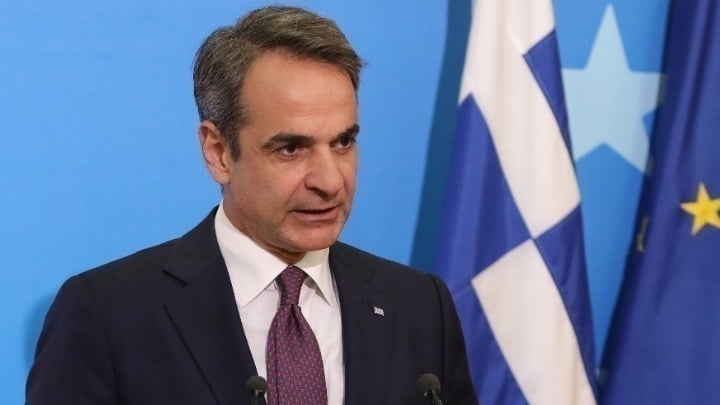Prime Minister Kyriakos Mitsotakis on Wednesday expressed his grief over the death of a police officer who died in hospital earlier the same day due to injuries inflicted when he was shot with a naval flare in Rentis during clashes with sports team supporters.
Mitsotakis underlined his pledge to ensure the punishment of the "murderers of Rentis and the eradication of the violence." He also offered his condolences to the family and friends of the deceased.
The 31-year-old police officer who was hit by a naval flare in an incident of sports violence on December 7, 2023 died in hospital as a result of his injuries on Wednesday.
The officer had been hit in the thigh by a flare fired by someone in the crowd, in clashes outside the "Melina Mercouri" sports facility in the south Athens neighbourhood during a volleyball match.
Judicial authorities will be informed of the officer's death so that the charges against an 18-year-old in custody for injuring the officer can be modified accordingly.
An investigation to identify more individuals involved in the fatal clashes is continuing in order to issue arrest warrants.
Hooligan violence in Greece has claimed lives
Greek soccer is plagued by endemic fan violence, which often spreads to other sports in which the main clubs field teams, such as basketball and volleyball.
In February 2022 in Thessaloniki, 19-year-old Alkis Kambanos was murdered by a gang of people, who attacked him and his friends in the street. The assailants, supporters of the football club PAOK, asked Kambanos and his friends what football team they supported.
The answer did not satisfy them, and they proceeded to beat and stabbing with knives Kambanos and his two friends.
In August 2023 Michalis Katsouris a fan of AEK Athens was stabbed to death during a brawl with hooligans of the Croatian club Dinamo Zagreb.
Police said nearly 100 people were arrested after the violent clashes, which led European football’s governing body, UEFA, to postpone the Champions League qualifying third-round, first-leg match between the two sides.
Since 1983, when the first death was recorded, at least 13 people have lost their lives in Greece as a result of football hooligan violence and a plethora of violent attacks against rival football team supporters or the police have taken place.
However, the difference between the recent attacks with the ones that happened more than one decade ago, is that hooligans are now better organised and use social media to recruit new members and coordinate their violent actions.
Moreover, according to analysts, the profile of hooligans in Greece, in no way resembles to the profile of the ones in other countries, for example, the UK in the 80s. Hooligans in Greece are largely independent of the football teams and are considered criminals with deep connections to other illegal activities.
READ MORE: Turkish Football Coach Fatih Terim Takes Charge at Greek Club Amid Fraud Allegations.


